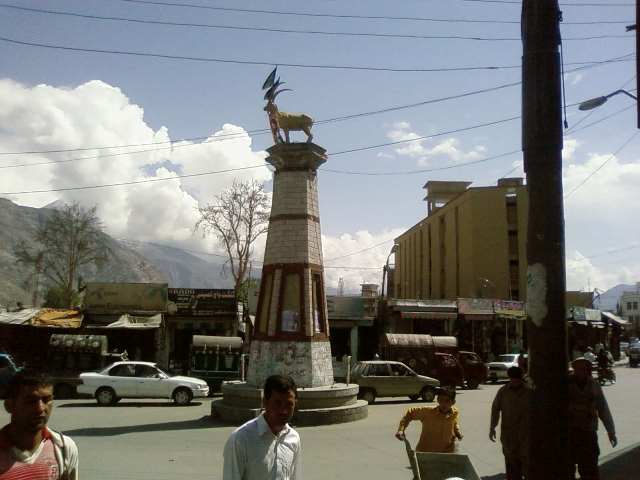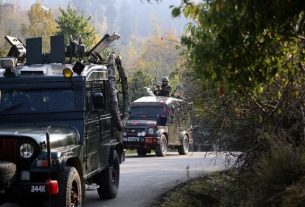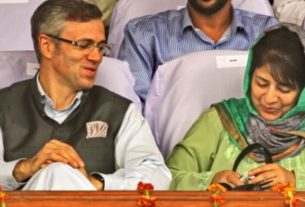It is very pathetic to watch the socio-political conditions of Gilgit Baltistan (GB) that stand deteriorated in multiple aspects. On one hand, the region has lost its political and constitutional identity in the past seven decades. And on the other, the sectarian and lingual dissension caused obstacles to the development of the region. Unfortunately, no attempt to strengthen socio-economic and political arenas has ever been made.
Gilgit-Baltistan has the potential to be an attractive destination for travellers, and tourists due to its unique topography as well as geostrategic position. This mineral rich place has also been the target of foreign occupiers.
China devised a mega road map to transport its goods and commodities to the rest of the world through its new giant OBOR “One Belt One Road” project, also known as BRI. Gilgit-Baltistan is the gateway of the Pakistan’s part of the BRI project viz., CPEC “China- Pakistan Economic Corridor”. Pakistan’s secret land deals with China in a mineral-rich area of Gilgit Baltistan raised protests against the projects because the people of the region were never taken on board as stakeholders. The deal allows Chinese companies to mine in the Gilgit Baltistan region without the need to provide jobs to the locals.
Residents of Gilgit Baltistan believe that Pakistan has in fact leased out the entire region as thousands of Chinese nationals are already employed at CPEC projects in the region. The hundreds of those employed include security and intelligence personnel from the Chinese military that are “keeping an eye” and ensuring security cover for Chinese companies. The region is deprived of the revenue generated by trade with China — valued at about half a billion dollars. Feeling of neglect and exploitation has pushed the locals to demand for Independence. In June 2013, Taliban insurgency spilled over into the territory, when about a dozen heavily armed Pakistani Taliban executed 10 foreign mountaineers at Nanga Parbat.
On the pretext of the terrorist threat to CPEC, Pakistan has amended its Army Act and established military courts in this region and thereby further terrorising the community. “There is no room for terrorism or terrorists in our society, and the government is determined not to be at ease till the elimination of the last terrorist from our country,” declared the Head of the present ruling dispensation in Pakistan. But in practice he has in his mind the “bad Taliban” only nurtured on Pak soil by his army and ISI for cross-border terrorism in J&K. Despite the Anti-Terrorism Courts (ATC) to prosecute terrorists, it has instead been used politically to prop up a colonial system. The military first promoted extremists to counter secular and nationalist groups and then used the spectre of extremism to justify increased military presence to maintain law and order. It is a win-win situation for the military at the expense of locals. It is baffling as to how military courts can be extended to Gilgit-Baltistan, leaving aside the criminal justice expected from military courts.
It is questionable as to how can a Gilgit-Baltistan court extend its jurisdiction to proceed against a citizen of Pakistan when Pakistan itself claims that Gilgit-Baltistan is not a constitutional part of Pakistan and its Constitution is not applicable to it
How does Pakistan’s military legal justice system operate? Pakistan’s Army Act, of 1952 provides for a four-tier structure of military courts at the field, district, and general levels, besides the simple summary trial level. It prescribes the bench at each level. At the district level, it comprises three commissioned officers with at least two years of experience. The military will be responsible for the preparation of a summary of trials, evidence, and other groundwork for the terrorists to be tried in these courts.
At present Gilgit-Baltistan is in a serious financial crisis and seeking the release of funds by the federal government. The total budget is of Rs13. 6 billion. The federal government provides Rs 8 billion annually to GB to provide subsidised wheat to the people in the region. However, due to increase in the wheat price in Pakistan and GB, the GB government had to purchase less wheat which resulted in the wheat shortage in the area as additional funds from the federal government were required to purchase the required quantity of wheat for the people.
When looking at the first master plan for Gilgit city prepared in 1977 by the government of GB under the consultancy firm Pakistan Environmental Planning and Architectural Consultant (Pvt) Ltd., it turned out to be nothing but just a piece of paper due to multiple factors. One of the most important factors was the absence of town planning institutions followed by a lack of legal and political backing. In the absence of a full-fledged town planning and building control directorate, the region is waiting for the implementation of the master plan of Gilgit 2040 which too is not possible.





